Why Coconut Oil Deserves a Place in Your Hair Routine
Tired of hair care products that promise glossy, voluminous locks—but instead leave you with dry, frizzy, and lifeless hair? You’re not alone. The search for a miracle solution has led many to rediscover a natural, time-tested remedy: coconut oil. For centuries, Benefits of Coconut Oil for Hair has been a staple in traditional beauty rituals across the globe—especially in tropical regions like South Asia and the Caribbean. Its unmatched ability to nourish, strengthen, and protect hair makes it one of the most versatile and affordable hair treatments available today.
In this article, we’ll uncover the top 10 benefits of coconut oil for hair, along with pro tips, DIY treatments, and everything you need to know to get started.
Top 10 Benefits of Coconut Oil for Hair
1. Deep Moisturization and Intense Conditioning
Why It Matters:
Dryness is often the root cause of many hair issues like breakage, split ends, and frizz. Coconut oil is packed with medium-chain fatty acids, especially lauric acid, that deeply penetrate the hair shaft, locking in moisture.
Key Benefits:
- Prevents protein loss
- Softens and smooths dry hair
- Strengthens hair against environmental damage
How to Use:
- Warm 2–3 tablespoons of organic coconut oil.
- Apply from mid-lengths to ends.
- Leave it on for 30 minutes or overnight.
- Rinse thoroughly with a sulfate-free shampoo.
Pro Tip: For curly or textured hair, leave a small amount in for all-day moisture and shine.
2. Stimulates Hair Growth Naturally
Coconut oil nourishes hair from the roots, promoting growth by improving blood circulation and providing essential nutrients like vitamin E, iron, and zinc.
Application Tips:
- Warm a tablespoon of oil.
- Massage the oil into your scalp in circles for 5–10 minutes.
- Leave for 30 minutes before washing.
- Use 2–3 times weekly for visible results.
Bonus: Massaging your scalp with warm oil also reduces stress—a hidden factor in hair loss.
3. Reduces Hair Breakage and Split Ends
Repeated styling, heat, and chemicals weaken the hair’s natural barrier, causing split ends and breakage. Coconut oil acts as a natural shield, coating strands and protecting them from damage.
Benefits:
- Reduces friction during combing
- Seals split ends
- Boosts elasticity
DIY Hack: Apply a drop of coconut oil to your ends after styling to prevent further damage.
4. Combats Dandruff and Soothes Scalp Irritation
Bid farewell to an itchy, flaky scalp! Coconut oil possesses antibacterial and anti-inflammatory qualities that address dandruff.
Treatment Recipe:
- Lightly massage into the scalp and leave it on for 30 minutes.
- Rinse with a mild anti-dandruff shampoo.
✔ This technique hydrates the scalp and tackles the underlying cause of flaking.
5. Acts as a Natural Heat Protectant
Before reaching for your straightener or curling iron, consider adding a thin layer of coconut oil to your hair. It creates a shielding layer that reduces heat harm and prevents moisture evaporation.
Benefits:
- Shields hair from direct heat
- Locks in hydration
- Adds sleekness and shine
Note: Use a very small amount to avoid greasy buildup.
6. Tames Frizz and Boosts Hair Shine
If your hair gets unruly in humid weather or looks dull after styling, coconut oil might be your new go-to. It helps flatten the hair cuticle and locks in moisture, instantly minimizing frizz.
How It Helps:
- Controls flyaway
- Prevents static
- Creates a polished finish
Quick Fix: Rub a pea-sized amount between your hands and smooth over dry hair.
7. Helps Repair Chemically Damaged Hair
If your hair has been bleached, dyed, or chemically straightened, it likely needs some extra care. Coconut oil helps bring back the natural oils lost during these treatments.
Why It Helps:
- Strengthens hair weakened by chemicals
- Restores important fatty acids
- Helps preserve hair color and shine
Tip: Use coconut oil before and after coloring to reduce damage and keep your hair healthy.
8. Naturally Fights Lice
Coconut oil can smother lice and make it easier to remove nits, offering a gentle, chemical-free solution.
Natural Treatment:
- Mix coconut oil with neem oil or apple cider vinegar
- Apply all over the scalp and hair, then cover with a shower cap
Bonus: This method is gentle enough for both kids and adults.
9. Enhances Scalp Health
A healthy scalp is key to healthy hair. Coconut oil nourishes the scalp, clears buildup, and promotes an optimal environment for hair follicles.
Benefits:
- Reduces inflammation
- Unclogs pores
- Balances sebum production
Routine: Massage into your scalp weekly for best results.
10. Adds Shine and Softness to Dull Hair
If your hair lacks luster, coconut oil can instantly boost softness and shine by smoothing the outer cuticle.
How to Use:
- After shampooing, small amounts of damp hair are applied.
- Let air-dry or style as usual.
Result: Silky, shiny hair that feels as good as it looks.
Easy Steps to Use Coconut Oil on Your Hair
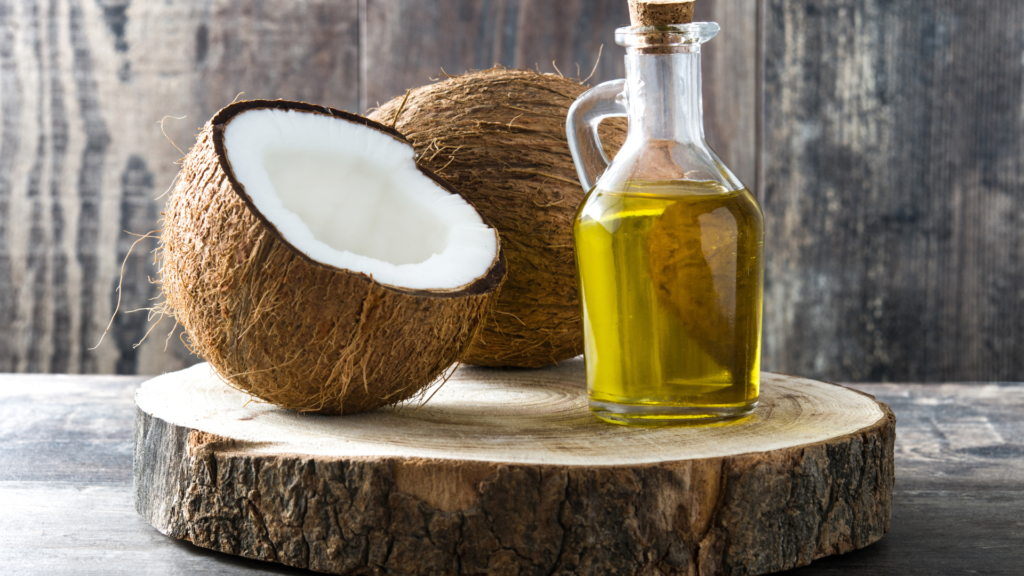
- Pick the Right Oil: Use cold-pressed, natural coconut oil for the best results.
- Warm It Up: Melt a small amount by rubbing it in your hands or heating it briefly.
- Massage Your Scalp: Gently rub the oil into your scalp in small circles.
- Spread Through Hair: Use your fingers or a wide-tooth comb to spread the oil from roots to ends.
- Let It Sit: Keep it on for 30 minutes, or leave it overnight for deep conditioning.
- Wash It Out: Rinse well with a gentle shampoo to remove the oil.
From hydration to scalp care, frizz control to hair growth, the benefits of coconut oil for hair are nearly endless. Affordable, natural, and backed by both tradition and science, coconut oil is a must-have in any hair care routine.
Let us know in the comments—and feel free to share your favorite application tips or homemade recipes!
FAQ’s
Q: How often should I use coconut oil on my hair?
A: Ideally, 2–3 times a week for deep conditioning. Adjust based on your hair type and needs.
Q: Can I sleep with coconut oil in my hair?
A: Yes! Overnight treatments offer deeper penetration. Use a shower cap or towel to protect your pillow.
Q: Will coconut oil make my hair greasy?
A: Only if over-applied. Start with a small amount and adjust depending on your hair’s thickness and texture

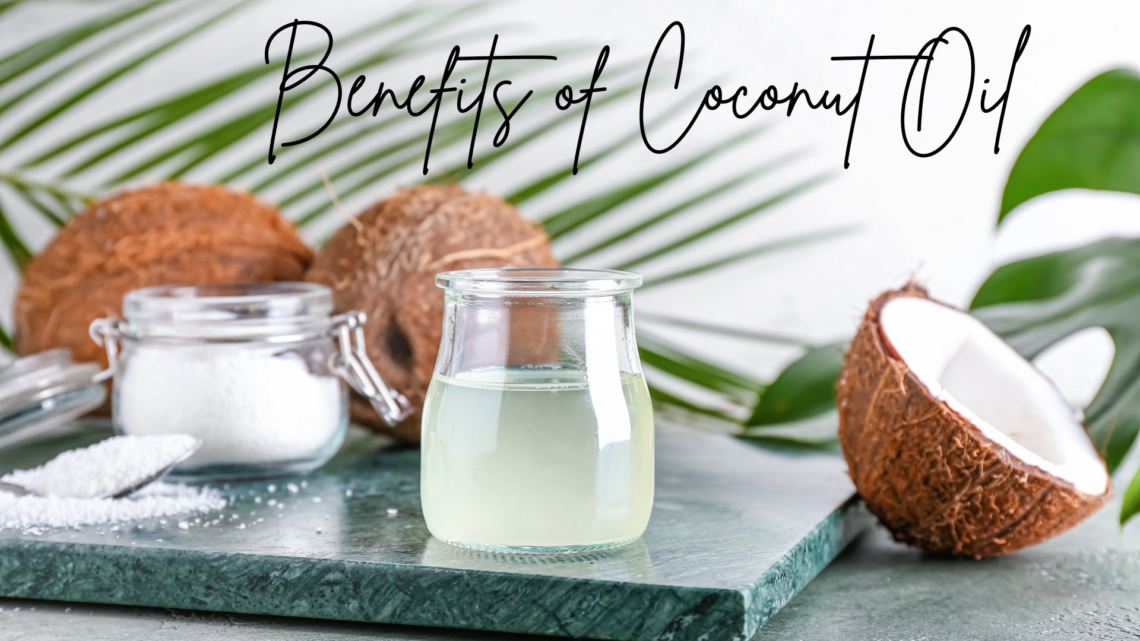
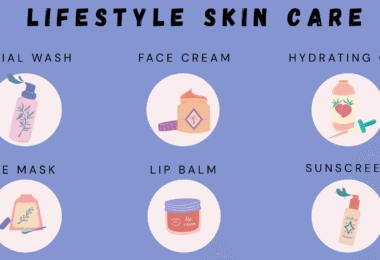
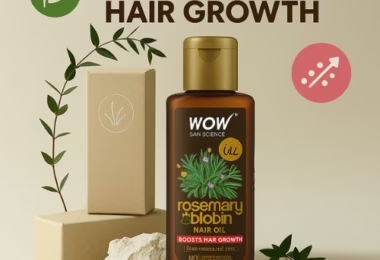



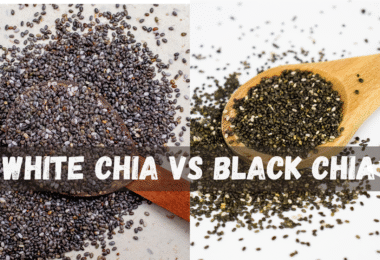
Leave a Comment